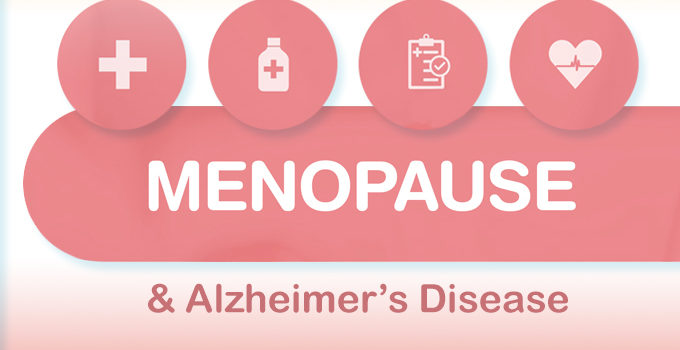

Is There a Connection Between Menopause and Alzheimer’s Disease?
by Jack Hodes
A gender disparity exists in the disproportionate number of women diagnosed with Alzheimer’s disease (AD) dementia. Data indicate that almost two-thirds of individuals living with AD in the United States are women.
Because age is the number one risk factor for Alzheimer’s Disease, some previously believed women were more likely to receive a diagnosis of Alzheimer’s Disease due to their longer lifespans. However, the distinct sex-specific risk factors and trajectory of the disease in women suggest a different explanation.
Does Menopause Contribute to Alzheimer’s Disease?
Menopause marks the end of a woman’s menstrual cycles and is diagnosed after 12 consecutive months without a menstrual period. Menopause can happen in a woman’s 40s or 50s, but the average age is 51 in the United States.
Research indicates that one of the primary contributors to cognitive decline in women is the onset of menopause and the hormonal changes that result.
While menopause is a natural age-related process, it causes reductions in sex hormones like estrogen and progesterone. These steroid hormones are not only important for fertility but also play a critical role in brain health.
Reproductive Health and Brain Disease
Interestingly, women who had menstrual periods earlier in life and went through menopause later were less likely to develop dementia. Additionally, women with three or more children had a 12% lower risk of dementia, and the longer the pregnancies, the lower the risk of developing Alzheimer’s Disease.
These statistics shed some light on the role of reproductive health in brain disease, but how and why are the two connected?
Estrogen and progesterone are carried through the blood and into the brain, where they bind to receptor targets on brain cells and alter energy production, neurotransmitter levels, and protein expression. These modifications influence memory, mood, executive functioning, and other cognitive abilities.
As menopausal and post-menopausal women are well aware, the decrease in hormone levels that accompanies menopause can also prompt a host of neurological symptoms, such as hot flashes, disturbed sleep, depression, brain fog, and memory decline.
Staving Off Alzheimer’s Disease Early
Although we often associate Alzheimer’s Disease with old age, recent advances in brain imaging research have shown that the brain changes that lead to Alzheimer’s Disease can be detected 20-30 years before symptoms begin. Because the onset of menopause can precipitate the early changes associated with Alzheimer’s Disease, it is especially important for women in midlife to intervene with strategies to optimize brain health.
Fortunately, the risk of Alzheimer’s Disease is significantly influenced by our diets, physical activity and stress levels, social lives, and lifestyle.
At the Pacific Brain Health Center, our research and clinical care is grounded in a holistic approach that incorporates all of these aspects of brain health so you can start improving your cognitive fitness today.
For more information, contact the Pacific Brain Health Center at 310-582-7641 or schedule a consultation online.
More Information
Alzheimer’s Disease In Women
Alzheimer’s Disease: Women Carry the Load
About the Author

Jack Hodes
Jack Hodes, Honors BS, is a Clinical Research Coordinator at the Pacific Brain Health Center. His primary focus is coordinating the day-to-day operations of the Alzheimer’s PREVENTION Trial, a one-year randomized controlled study for individuals with mild cognitive impairment due to Alzheimer’s disease.
Last updated: June 25th, 2020